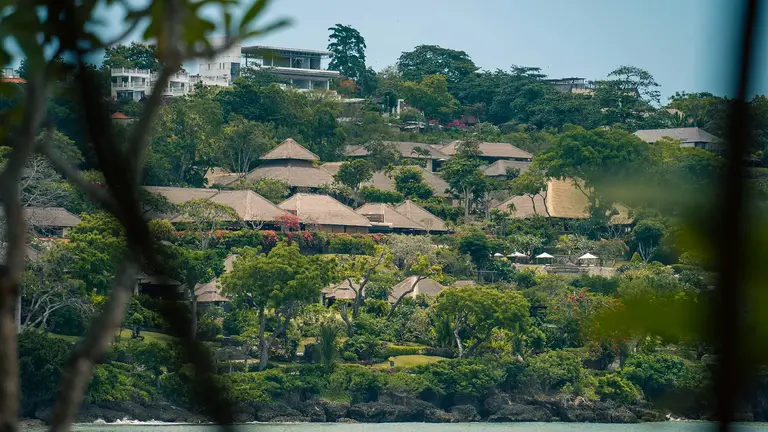In a bold move to address growing concerns over overtourism and environmental degradation, Bali, one of the world’s most popular tourist destinations, is considering a ban on the construction of new hotels. This proposal, backed by the island’s governor, Wayan Koster, seeks to protect Bali’s natural beauty and preserve the cultural integrity that has drawn millions of visitors annually.
The Overtourism Crisis in Bali
Bali, renowned for its picturesque beaches, vibrant culture, and tropical landscapes, has faced unprecedented tourism growth in recent decades. In 2019, the island welcomed over 6 million international visitors, in addition to the millions of domestic tourists, contributing significantly to Indonesia’s economy. However, this influx has also caused environmental strain, with rising concerns about pollution, waste management, traffic congestion, and the depletion of natural resources.
The rapid development of infrastructure, particularly hotels, villas, and resorts, to cater to the growing tourist numbers has been at the forefront of these issues. Areas like Kuta, Seminyak, and Ubud have seen massive expansion, often at the cost of farmland and green spaces, leading to fears that Bali’s cultural heritage and environment are being sacrificed for economic gain.
Governor’s Proposal: A Bold Step Toward Sustainability
Governor Wayan Koster, in response to these concerns, recently announced plans to halt the construction of new hotels, particularly in southern Bali, which includes the tourism-heavy regions of Kuta, Seminyak, Nusa Dua, and Jimbaran. Koster emphasized the need to address the island’s environmental degradation and limit the strain on local resources caused by tourism.
Koster’s proposal aims to give Bali’s infrastructure and natural ecosystems time to recover. He has argued that further development without controls could lead to the island losing its unique charm, the very attraction that has made it a global tourist hotspot.
In a statement, Koster said, “We are aware that Bali cannot continue growing this way. Our environment and culture are suffering, and it’s crucial to take action now to prevent irreversible damage.”
Environmental Impact: A Growing Concern
One of the primary reasons for the proposed ban is the environmental toll tourism has had on the island. With more tourists comes more waste, traffic, and strain on water resources. Bali has struggled with waste management, particularly in handling plastic waste, which often ends up polluting beaches and rivers. Despite government efforts to promote recycling and ban single-use plastics, the sheer volume of tourists exacerbates these problems.
The water crisis is also a major concern, as Bali’s freshwater resources are being depleted faster than they can be replenished. Tourism accounts for a significant portion of this demand, with luxury resorts, golf courses, and villas consuming vast amounts of water, leading to shortages for local communities.
Additionally, Bali’s coral reefs and marine life are under threat due to overfishing, pollution, and irresponsible tourist activities. The rapid urbanization has also led to deforestation and the destruction of natural habitats, displacing wildlife and damaging the island’s biodiversity.
Cultural Preservation and Community Well-Being
Beyond environmental concerns, there are growing fears that Bali’s rapid development and influx of visitors are eroding its cultural heritage. Balinese culture, deeply rooted in Hindu traditions and rituals, has been integral to the island’s identity. However, the increasing commercialization and westernization of Bali’s tourist areas have led some locals to feel that their culture is being commodified and diluted.
Traditional communities, particularly in rural areas, are facing displacement as farmland is converted into commercial properties or sold to developers. There is also a growing economic disparity between those who benefit from tourism and those who do not, with many locals feeling left behind despite Bali’s booming economy.
Economic Implications of the Ban
While the environmental and cultural arguments for a ban on new hotels are clear, the potential economic impact of such a decision has sparked debate. Tourism is a major driver of Bali’s economy, accounting for over 80% of its revenue. The island’s dependence on tourism was evident during the COVID-19 pandemic when Bali’s economy suffered a significant downturn due to travel restrictions.
Opponents of the ban argue that limiting new hotel developments could harm Bali’s economic recovery, particularly as the island is beginning to see an influx of tourists again post-pandemic. Critics claim that restricting new accommodations might lead to a shortage of rooms, driving up prices and deterring budget-conscious travelers, which could, in turn, hurt small businesses and local vendors who rely on tourism.
However, supporters of the ban argue that Bali needs to prioritize sustainable tourism over rapid growth. They believe that improving the quality of existing accommodations and infrastructure, rather than expanding, is key to ensuring the long-term health of Bali’s economy and environment. Proponents also highlight the need for diversification, encouraging Bali to explore other industries such as agriculture, technology, and the creative arts to reduce its overreliance on tourism.
A Shift Toward Sustainable Tourism
Bali’s potential hotel ban is part of a larger global trend where popular destinations are grappling with the challenges of overtourism. Many regions, such as Venice, Barcelona, and Thailand’s Maya Bay, have implemented measures to control visitor numbers and protect their environments.
In Bali’s case, the focus is not just on limiting tourism but on transitioning toward more sustainable practices. Governor Koster has expressed interest in promoting eco-tourism and cultural tourism, encouraging visitors to engage with Bali’s natural landscapes and traditions in a more responsible and meaningful way. This shift could lead to a reduction in mass tourism while attracting higher-quality tourists who respect the island’s values and environment.
Conclusion: A Delicate Balance
Bali stands at a critical crossroads, as it balances its economic reliance on tourism with the urgent need to protect its environment and culture. The proposed ban on new hotel developments is a bold step toward managing overtourism, but its success will depend on the government’s ability to enforce regulations and find a sustainable path forward.
As Bali considers this significant policy change, the world watches closely, hoping that the island can strike a balance between welcoming tourists and preserving its identity for future generations. In doing so, Bali could serve as a model for other destinations facing similar challenges, proving that it is possible to prioritize sustainability while still thriving as a global tourist destination.





